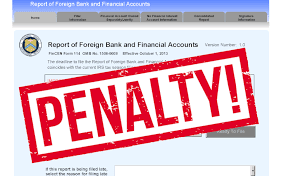Angela Chavis and her husband were officers of a corporation that failed to remit withheld payroll taxes to the IRS. The agency issued Angela Chavis a Letter 1153, Notice of Trust Fund Recovery Penalty, informing her that it proposed to assert a TFRP against her.
Letter 1153 includes detailed instructions about the steps to take in order to appeal the proposed assessment and the issues that would be considered during an appeal. The letter also warned: "If we do not hear from you within 60 days from the date of this letter... we will assess the penalty and begin collection action."
When Chavis didn't file an appeal to challenge the proposed assessment, the IRS assessed TFRPs totaling $146,682. The IRS followed up the assessment by issuing Chavis a Letter 3172, Notice of Federal Tax Lien Filing and Your Right to a Hearing. Chavis timely requested a CDP hearing.
During the CDP hearing Angela Chavis sought to challenge her liability for the TFRPs. The appeals officer explained that Chavis couldn't challenge her liability for the TFRPs because she received Letter 1153, and didn't file an appeal challenging the liability before the IRS assessed the penalties.
Then, Chavis requested "innocent spouse" relief under Code Sec. 6015. However, the appeals officer determined that such relief isn't available for TFRP liabilities.
Finally, Chavis asked the IRS to place her account in currently not collectible (CNC) status and that the IRS withdraw the lien. The appeals officer considered Chavis' collection alternatives but determined that Chavis didn't qualify for either one.
Chavis submitted a Form 433–A, Collection Information Statement for Wage Earners and Self-Employed Individuals, together with supporting financial information. Based on this information, an IRS collection specialist determined she could pay $1,685 a month toward the TFRP liability and, therefore, didn't qualify for CNC status.
The appeals officer issued a Notice of Determination (NOD) sustaining the IRS's lien filing and Chavis timely petitioned the Tax Court for review of the NOD.
According to the Tax Court, the appeals officer correctly determined that Chavis couldn't challenge the TFRPs in a CDP hearing because Letter 1153 afforded her a prior opportunity to challenge the penalties, which she failed to do. As a result, she couldn't challenge her liability for the TFRPs at a CDP hearing or in the Tax Court.
In addition, the Tax Court said the appeals officer properly determined that Chavis wasn't eligible for innocent-spouse relief because her TFRP liability didn't arise from any liability shown on a joint federal income tax return.
Have an IRS Tax Problem?
Contact the Tax Lawyers at
Marini & Associates, P.A.













